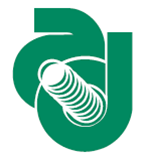Speaker
Dr
Mark Tobin
(LPHE-EPFL)
Description
The LHCb experiment is a single arm spectrometer, designed to
study CP violation in B-decays at the LHC. It is crucial to
accurately and efficiently detect the charged decay particles,
in the high-density particle environment of the LHC. For this,
the Outer Tracker (OT) was constructed, consisting of 54,000
straw tubes, covering in total an area of 360 m2 of double
layers. The detector operated in 2011/2012 under large particle
rates, up to 100 kHz/cm per straw in the region closest to the
beam.
The performance of the OT detector during Run-I of the LHC has
been studied in detail, in terms of efficiency, resolution and
noise rate. Particular attention is devoted to the radiation
hardness of this sensitive gaseous detector, that has shown to
suffer from gain loss after mild irradiation in laboratory
conditions. During the shutdown period of the LHC, extensive
studies have been performed on subtle spatial alignment
effects, and real-time calibration procedures have been
prepared for run-II.
In addition, expectations of the OT during run-II in 2015 will
be shown. The increased center-of-mass energy of 13 TeV will
result in larger particle densities, which is further enhanced
by out-of-time hits due to the reduced bunch spacing of 25ns in
run-II.
Collaboration
LHCb
Primary author
Dr
Niels Tuning
(Nikhef/CERN)

